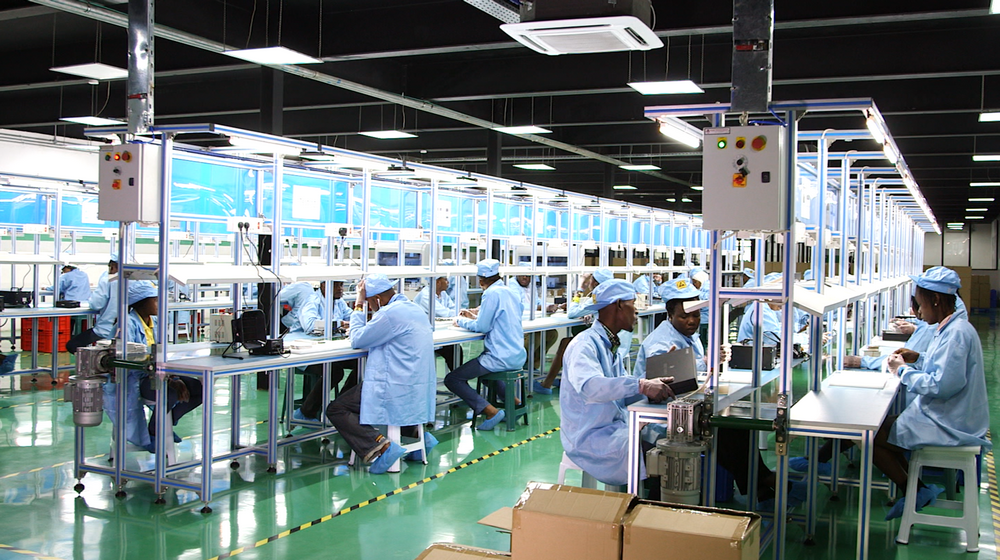On this week’s episode of CNN ‘Marketplace Africa’, Zain Asher meets Sahir Berry, CEO of AfriOne, who explains why it’s the right time to introduce a “Made in Nigeria” smart phone.
AfriOne Limited is the first company to manufacture mobile phones and devices in Nigeria.
Berry explains why the company is the first of its kind: “When we say ‘Made in Nigeria’, there’s a lot more that goes on than just assembling or buying the components. It’s designed here completely [at our] research and design facility. We also optimise all the Android software for it to be more compatible [with] the local environment.”
Based in Lagos, the AfriOne factory produces around 4,000 smartphones and tablets each day. Such a large amount of production needs a skilled workforce and Berry outlines how it was essential that the 80 assembly line employees were trained on the job: “Some of [our employees] came from extremely different professions and so we actually run a training programme where we take on people that don’t have any skills and teach them.”
The manufacturing sector has been positioned as a major driver of growth for Nigeria by the country’s president, Muhammadu Buhari, who has also vowed to get rid of bottlenecks which have stifled the industry. This isn’t the first time Nigerians have been promised such industry growth, however the president of the Manufacturers Association, Frank Jacobs, thinks things are different this time around. “The government has come up with a number of policies to support manufacturing and we are seeing some positive developments,” he tells the programme.
Jacobs further outlines the practical policies which have been put in place to support manufacturing: “Before, it would take a long time to register a business in this country but today it takes within 48 hours. Clearing goods out of the ports were rather slow before – it used to take weeks – but today we can do it within a week.”
AfriOne’s experience of local government reflects Jacobs’ positivity. Berry tells the programme that spearheading a new sector in Nigeria meant that the company had to work closely with governmental bodies: “We’re trying to pioneer, build and invest in a new industry, [which didn’t] exist. We’ve had a lot of proactive engagement with the government and they gave us all the clearances that we need.”
There are, however, some areas which Berry believes still need to be improved. “It’s never the same [with] customs so it’s very hard for us to plan. One day we can have our components out in a week and other days it could take one month. Even electricity, for example – if we had a consistent supply of electricity between certain times, it will make our lives much easier,” Berry summarises.
Despite this, AfriOne is looking ahead to the future and is planning on manufacturing even more items in Nigeria. The company currently imports all of their components from China, but Berry says that this will change: “Right now we are in talks with small businesses to provide us [with] things like chargers, cables and earphones. Every five years we plan to increase the number of components we make locally.”
Berry’s keen eye for a gap in the market means that AfriOne’s business plans appear to be working. Having sold more than 200 thousand units so far and with nearly 140 million active mobile subscribers in Nigeria alone, the company has much potential for growth and continued success across the continent.





